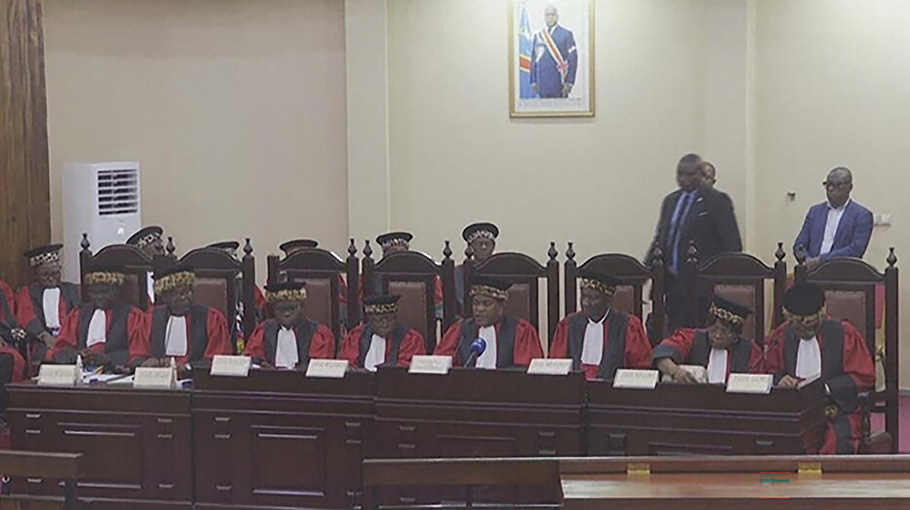DR Congo president to be sworn in for new term before huge crowd

The president of the Democratic Republic of Congo, Felix Tshisekedi, was to be sworn in for a second five-year term on Saturday after sweeping elections which the opposition has branded a sham, calling for protests.
With tensions simmering in the vast nation's volatile eastern provinces, the 60-year-old president known as "Fatshi" has picked Kinshasa's 80,000-capacity Martyrs sports stadium for the ceremony.
Eighteen other heads of state will attend, according to the authorities.
His first swearing-in, in January 2019, after controversially defeating Joseph Kabila, took place in the gardens of the Palace of Nations, a solemn venue that has traditionally staged important official events.
Tshisekedi is the son of the late historic opposition figure Etienne Tshisekedi.
He became president promising to improve living conditions in the DRC -- which boasts mineral riches but has a largely impoverished population of 100 million -- and put an end to 25 years of bloodshed in the east. He has not kept those promises but this time around he campaigned strongly on his first-term achievements such as free primary medication, asking for another mandate to "consolidate" the progress.
More than 40 million people were registered to vote on December 20 for a president, as well as national and regional lawmakers and municipal councillors. - 'Gigantic, organised mess ' - Polling was officially extended by a day to account for multiple logistical snarls and continued for days afterwards in remote areas.
In the end, Tshisekedi officially triumphed with 73.47 percent of the vote. Moise Katumbi, a former governor of the central region of Katanga, came a distant second with 18.08 percent.
Martin Fayulu, who says he was also robbed at the last presidential vote, garnered five percent.
Nobel peace prize winner Denis Mukwege, who won the Nobel peace prize winner for his work with rape victims, scored 0.22 percent.
These candidates called for the election results to be cancelled. A protest planned for December 27 was banned and snuffed out by the police. The archbishop of Kinshasa denounced the elections as a "gigantic, organised mess".
Accusations of fraud and an "electoral hold-up" have not abated and the fear of violence remains real in a country with a dark political past. - Security challenges - Katumbi and Fayulu have appealed to supporters to "show their discontent" on Saturday.
They urged people "to stand up and say 'no'", from wherever they happen to be.
The electoral commission CENI has recognised cases of fraud, vandalism and intimidation, as well as the use of illegal voting machines.
In the general election, the vote has been annulled for 82 candidates -- including three government ministers and four provincial governors.
The security challenge remains monumental for Tshisekedi.
There was a lull in fighting in the east during the elections but violence has since resumed between the army and M23 rebels, backed by neighbouring Rwanda.
Since mid-December troops from the 10-nation Southern African Development Community (SADC) have been discreetly arriving in the DRC.
They are taking over from an East African peacekeeping force whose mandate was ended by the DRC government, who alleged it colluded with the rebels instead of fighting them.
A senior army officer said on Tuesday that Kinshasa was counting on them to help it regain ground from the M23 militia, which has conquered swathes of territory in the east since taking up arms again in 2021.




